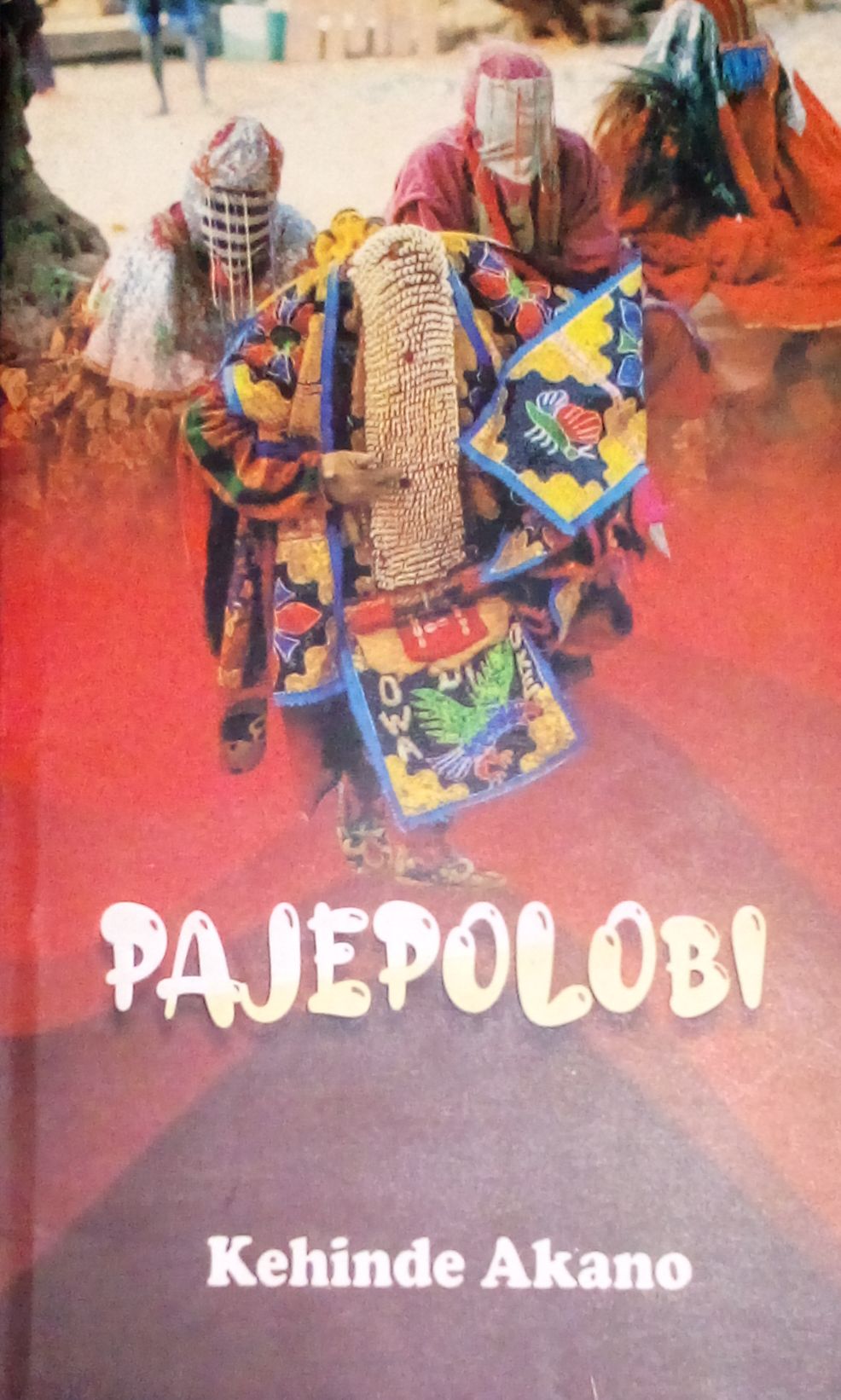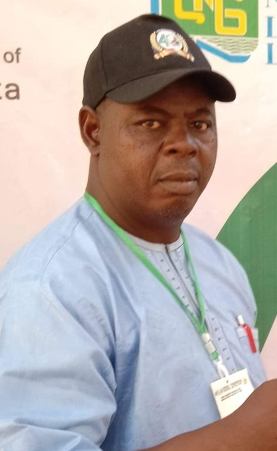Published October 24th, 2022
Review
by Adewuyi Ayodeji
Nigerian writer Kehinde Akano is well recognized for writing against oppression and injustice in human society. He was the winner of the 2021 Association of Nigerian Authors (ANA) Prize for Poetry for his poetry collection, Emirate Blues and Home Resistance. The relevance of a timely exposure to positive myths, legends, and history constitutes the thematic hub of his debut play, Pajepolobi. The play, which was the 2nd runner-up for the ANA Prize for Drama in 2021, underscores the necessity of regularly revisiting the history of legendary figures in our communities as this will not only help bring out the much-needed cultural revitalization, it will motivate the younger generation to learn patriotically from their heroic exploits.
After a careful reading of, and purposeful exposure to, the legend of Pajepolobi, it is not astounding that his son, Ologunde, turns out to be a human rights activist: “Ologunde owes it all to his background, especially his ancestral spirit. It runs through their blood, the revolutionary trait. He owes it to his father” (25). While his father used his magical powers to mercilessly challenge wicked people in his time, Ologunde uses his formal education to tackle corrupt people. Simply put, Pajepolobi is a historical play which draws on the legend of Taiwo Omobimpe, a renowned masquerader in the playwright’s hometown, Shao, who used his magical powers to correct anomalies in his society. Today, his son, Ologunde Labalaba, continues to fight oppressors but in a modern way. Therefore, it is sufficient to say that Ologunde is a genuine reincarnation of his father.
Ologunde is portrayed as a round character who does not bulge even in the face of open hostility and threat to life, and that is why he is loved by the members of his group, who sing solidarity songs to ask for his release from the police custody: “All we are saying / Give us Olooogun. / All we are saying / Give us our leeeeader.” Throughout the play, he remains steadfast in his effort to cleanse the society of all forms of ills, especially corruption in high places. Even when he and his group members are declared wanted by the police on the flimsy allegation that he mobilizes them to disrupt the peace of the community, he is able to implicate Honourable in the embezzlement of funds meant for the construction of a cottage hospital in Yeregi Ola.

The playwright fruitfully incorporates flashbacks (through play within a play) into the play to project the superhuman traits of Taiwo Omobimpe (alias Pajepolobi) and showcase the importance of masquerades in traditional Yoruba society. The personality of Pajepolobi as an archetypal human rights activist who employs his magical prowess to free the oppressed from humiliation is revealed in a flashback. Exposed as a cult leader who carries his members along in decision making, Pajepolobi wields his recondite machinery towards saving humanity from the wicked. Through this dramatic device, the playwright succeeds in bringing to the fore the roles of masquerades in Yoruba as a spiritual creation, social crusader, and entertainer. This message Pajepolobi’s ability to conquer a wicked witch, who uses her masquerade to shorten people’s lives, intends to hammer home.
Of great fascination in the play is the affirmation that one’s genetic make-up can influence one’s disposition towards socio-political issues, as shown in Ologunde unknowingly sharing the humane mindset of his late father. Although time has created some nuances in the dimension of their activism, they both still share a similar view of an incorruptible, benevolent, and selfless human society. The mode of achieving that vision has radically changed, but one thing the space of time between the father and the son has not done is to abruptly quash the continuity of an altruistic worldview. It would thus seem that Kehinde Akano, through adroit exploration of human heredity, has as his preoccupation in this play a recreation of the past from the present. However, unlike in the case of Ologunde, it does not necessarily need to be genetic or hereditary: to him, legends like Pajepolobi become the archetypal teachers whose instructions should never be jettisoned by the younger generation. Yet, the method of retaining and reproducing the same might be altered to suit the present situation.

The playwright infers that for the lessons from such legends to be fully harnessed and appropriately utilized, there must be an elderly narrator who doubles as the link between the past and the present. Baba Oodua duly plays that role very well as he guides the younger generation (Oodua agents and Ologunde) to a better future through learning from the past. It is, however, doubtful that Ologunde consulted Baba Oodua before he innocently exhibited a streak of arrogance by declining to be presented an award as Comrade Extraordinaire by the Oba. I am quite aware that the playwright’s attitude towards this action is suggestive of admiration for Ologunde, but I somehow cannot afford to fall in with this line of thought. Much as he intends to shame the Oba for his disgraceful involvement in bribery publicly, the act is unfortunately ill-timed. Rather than cast an aspersion on the person of the Oba, it constitutes an affront to the traditional institution he represents. For me, in trying to show Ologunde as an upright, incorruptible man, this singular gaffe negates the sanctity of Yoruba tradition and portends a gradual erosion of the Yoruba concept of Omoluabi he conversely claims to protect. Far from it, this is not to insinuate that he has been plunged into inexcusable transgression: only a few people have had youthful exuberance well occulted in their lives.
Thanks to the playwright’s ingenuity in digging deep into the past with the intent of unearthing the untapped treasures of history in a helpful manner to the present generation, the play is able to successfully dwell on the possible reincarnation of legends. Of course, this unique artistic enterprise has been the hallmark of Kehinde Akano’s works — especially his poetry and drama. His vast knowledge of and continual allusion to the legendary figures of his community cannot be downplayed. Time may have changed a great deal, the world hasn’t as much. Oppression, man’s inhumanity to man, bestiality, corruption, and other social vices remain primordial battles no nation can totally eradicate. In this play, specifically, Akano sources remedies to the ugly externals of our ‘civilized’ world from the archive of his community, which houses a profusion of legends like Pajepolobi. The rationality in the old teachings of these archetypal teachers is enduring. Myths, legends, and history about goodness to humanity abound in every culture, which can readily serve as a springboard for positive change modern society gravely yearns for. Thus, perused holistically with a handy literary microscope, Pajepolobi rekindles the reader’s interest in better understanding the relevance of past heroic deeds to the advancement of the modern world.
Nationality: Nigerian
First Language(s): Yoruba
Second Language(s):
English
Supported by:


Comments on "Legends Reincarnate — A Review of Kehinde Akano’s "Pajepolobi""
Please log in to submit a comment.
Login